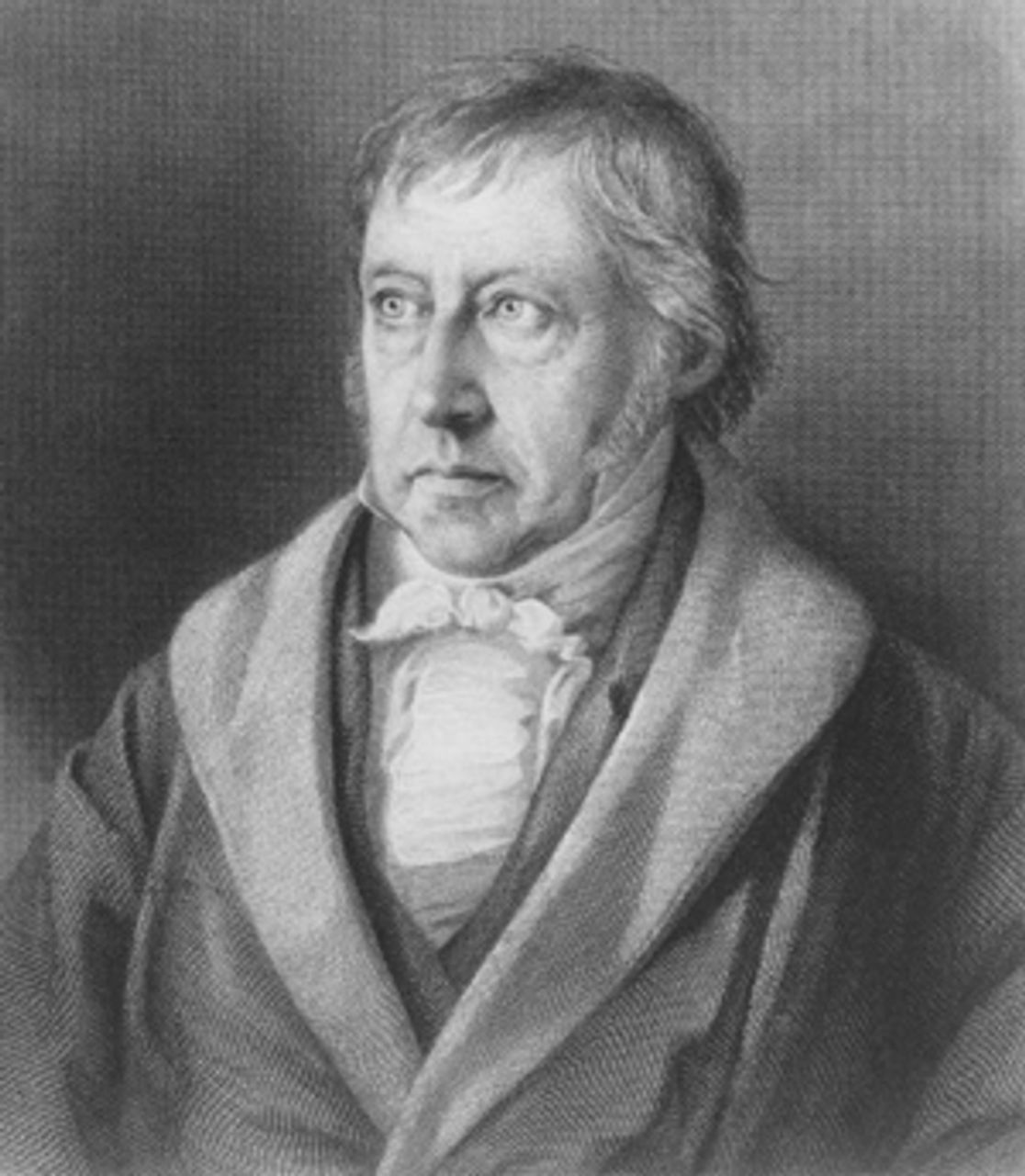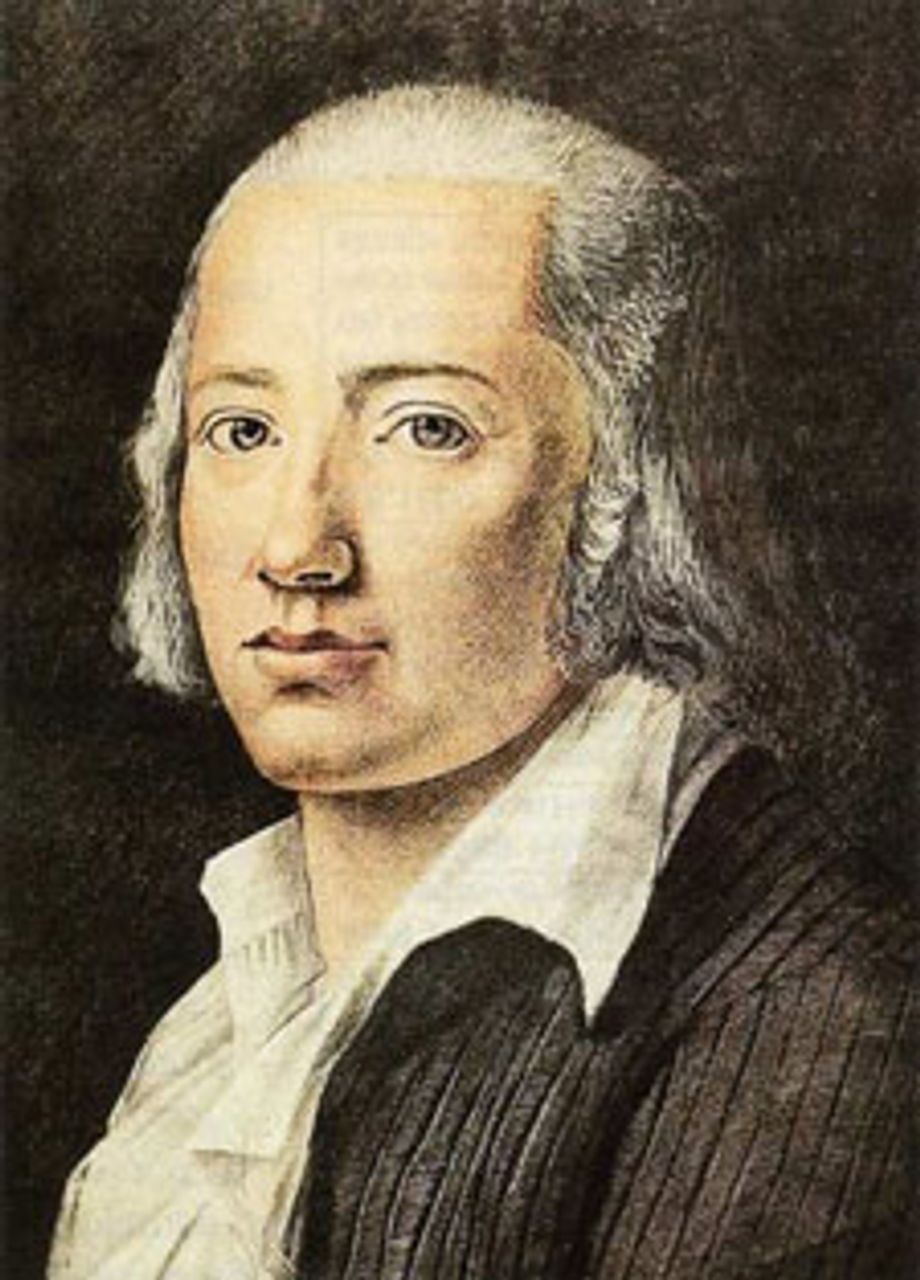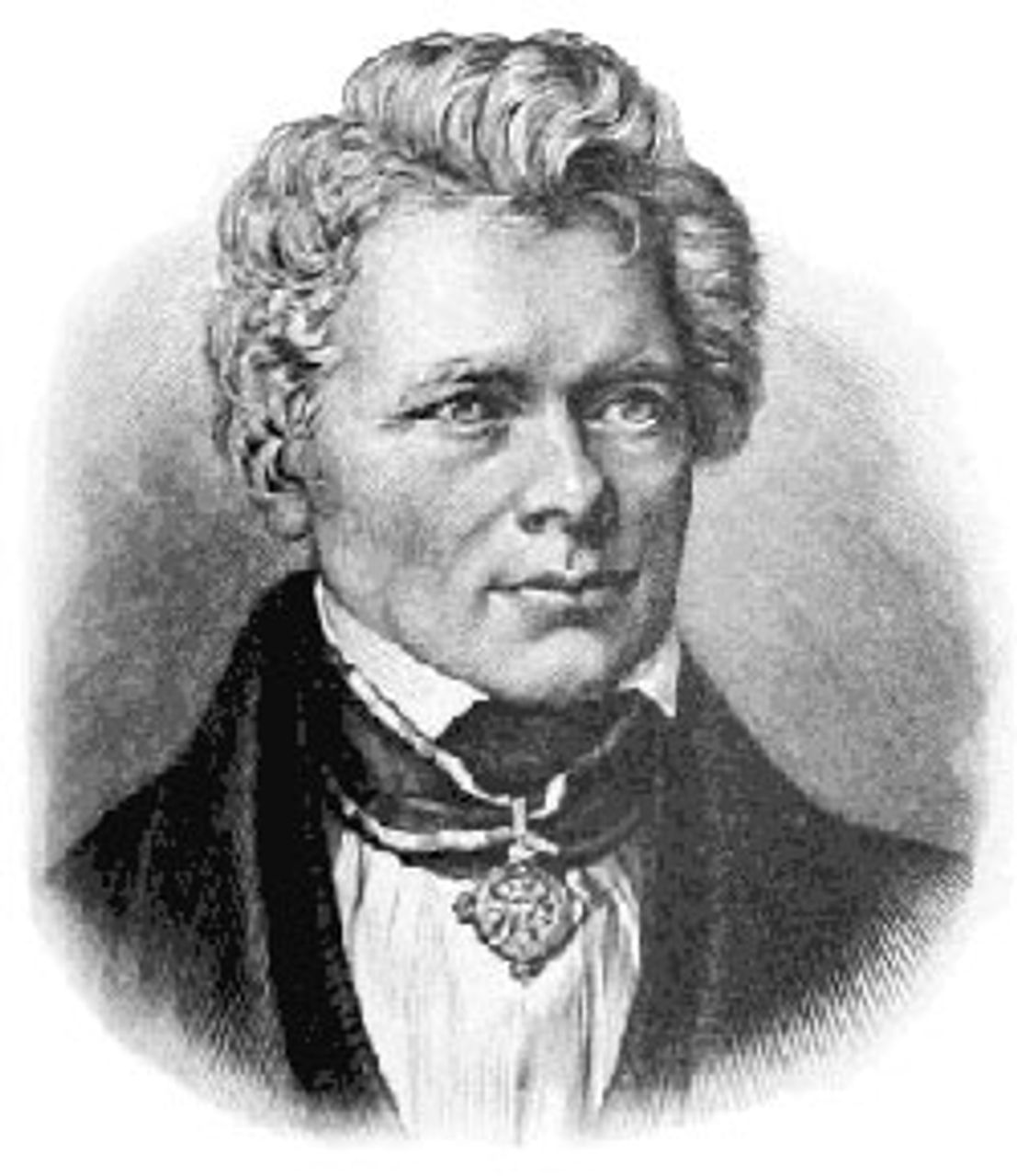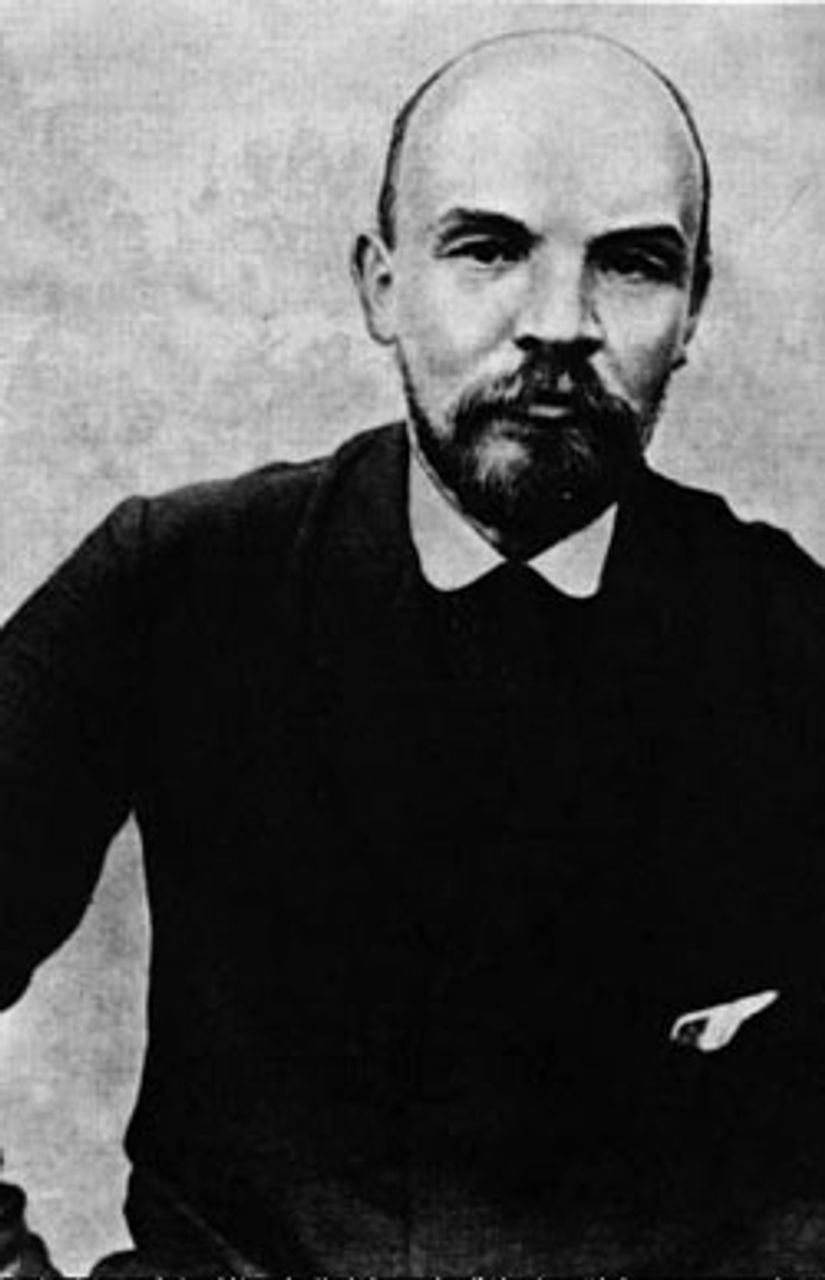The Cambridge Companion to Hegel and Nineteenth-Century Philosophy, edited by Frederick C. Beiser. Cambridge University Press, 2008 Cambridge, Massachusetts. Paperback (ISBN-13: 9780521539388), $32.99.
This is the first part of two.
 Hegel
HegelLast year saw the publication of The Cambridge Companion to Hegel and Nineteenth-Century Philosophy, edited by Frederick C. Beiser. The volumes of the Cambridge Companion series contain collections of essays by scholars working on a particular philosopher or subject area. They are intended to be introductory reference works to their subject matter and frequently serve as college textbooks at both the undergraduate and graduate level. Their editors and contributors are generally well-respected by other professional philosophers, and the series tends toward the inclusion of newer research. For that reason, the essays they contain may be indicative of the current state of scholarship among a wide layer of people in and around academic philosophy. The intention of the present article is to survey some of the more interesting findings of this research and comment on some of its limitations.
As Beiser indicates in his editorial introduction, “The Puzzling Hegel Renaissance,” since the publication of The Cambridge Companion to Hegel in 1993, there has been a notable growth of interest in Hegel and a vast increase in the quantity of scholarly work on his philosophy. According to Beiser, this—along with the absence of essays on certain topics in the first Hegel-themed Cambridge Companion, such as Hegel’s philosophy of nature and philosophy of religion, and a desire to include the work of younger scholars, as well as newer essays by more established ones—justified the production of this new collection of essays.
Although its title would suggest an emphasis on the relationship between Hegel’s work and that of other nineteenth-century figures, such as Marx, for example, it is conceived, as indicated in Beiser’s preface, more as a second edition of The Cambridge Companion to Hegel, albeit with a new set of essays. References to other philosophers and thinkers are mostly limited to Hegel’s contemporaries, predecessors, and even more remote historical thinkers. In fact, while the original Cambridge Companion included the essays “Hegel and Marxism,” by Allen Wood, as well as “Hegel and Analytic Philosophy,” by Peter Hylton, this new volume contains no essays, outside of Beiser’s introduction, which deal directly with the reception of Hegel’s thought after his death in 1831.
This is a very serious limitation, and represents a step backward from earlier periods in Hegel studies. The very idea that one can understand Hegel without examining the reception of Hegelian ideas by other thinkers, particularly Marx, is absurd and retrogressive. Hegel’s ideas are not merely the artifacts of an isolated genius; their true significance and meaning can only be gauged by their reception and development. Marx and Engels delivered not only the most devastating criticisms of the Hegelian system, they were also the first thinkers to appreciate the theoretical advances made by Hegel and place them on a scientific and materialist basis. Without them, it is quite possible that this volume would not exist, given the continuous effort by philosophers of various persuasions to bury Hegel and turn towards the manifold forms of subjectivism (Schopenhauer, Nietzsche, the Neo-Kantians, the positivists, etc.).
Beiser attempts to provide an explanation for this apparently strange phenomenon: the relatively recent growth of intense interest in Hegel on the part of professors of philosophy. As he says, “Such a surge in interest is remarkable for any philosopher, but especially for one who, some fifty years earlier, would have been treated as a pariah.” (1) It is no great secret that academic philosophy in the English-speaking countries has largely ignored Hegel, considering him to be at best hopelessly obscure, and at worst a dangerous charlatan responsible for providing an intellectual basis for fascism and Stalinism. James Burnham’s characterization of Hegel in “Science and Style” as “the century-dead arch-muddler of human thought” still represents the opinion of a considerable faction of philosophers.
Much of the antipathy towards Hegel finds its source in the fact that his thought was seen to lead to Marx and Marxism. But, as Beiser acknowledges, after the dissolution of the Soviet Union and the collapse of the eastern European Stalinist states, “Marxism suffered—for better or worse—a steep decline in prestige. But as Marx’s star fell, Hegel’s only rose.” The clear implication is that with Marxism out of the way Hegel could again be seen as politically non-threatening, and he “was restored to the pantheon of great philosophers, taking his place alongside Leibniz and Kant.” (2) So much for judging philosophical works based on the soundness and validity of the arguments! This statement is a rare admission that political considerations are a substantial factor in their acceptance or rejection by the academy.
In the rest of his essay, Beiser explains that much of the credit for the revival of interest in Hegel can be credited to scholarly interpretations which have “anachronistically” interpreted Hegel in order to further contemporary philosophical concerns. Representative of this “anachronistic” approach, in Beiser’s estimation, are Robert Pippin and Robert Brandom who, while differing in many respects, have greatly downplayed the metaphysical and religious dimensions of Hegel’s thought in order to make it more palatable to contemporary philosophical tastes, while presenting their interpretations as Hegel’s own position. While he admits that such work has been interesting, Beiser advocates that future work take a more “antiquarian” interest in Hegel, finding out what his actual positions were and why he held them, and only later worrying about their applicability to contemporary philosophical concerns.
While it is true that Pippin’s interpretation of Hegel has been highly influential, at least among the professoriat, it must be said that his approach is not merely “anachronistic”—it is highly revisionist. Pippin’s Hegel is a Kantian, committed to Kant’s basic framework and to carrying out his project in regard to providing a subjective foundation for the external world. This line of interpretation ignores Hegel’s ruthless criticisms of Kantianism, and especially of Kant’s restrictions on human reason and knowledge, and this ultimately results in a subjectivist version of Hegel. Given the widespread acceptance of such notions in the academy, it is perhaps no surprise that Pippin’s work has found a substantial audience. Beiser’s collegial and muted criticisms of Pippin and others putting forward similar arguments, are unfortunate. Their work requires a more thorough and systematic debunking if any substantial progress in Hegel scholarship is to be attained.
Hegel’s biography
Terry Pinkard’s contribution, “Hegel: A Life”, a shortened version of his book, Hegel: A Biography, places Hegel’s intellectual labors within their proper personal and historical context. Despite the limitations of Pinkard’s philosophical orientation, his historical work is nonetheless quite interesting and useful. Among the more interesting things we find out about Hegel is his background in the Württemberg petty-bourgeoisie. His father was a minor official at the Royal Treasury, and his mother came from a family of Swabian Protestant reformers. Although possessed of a somewhat provincial pride in their particular Protestant and local traditions, they were receptive to the new ideas circulating at the time, and subscribed to the “Enlightenment-oriented journals of their day.” According to Pinkard, “they based their claims to rank and promotion on learning and ability, not on family connections.” (17)
This attitude towards social position would stay with Hegel his whole life, with the consequence that he maintained all sorts of acquaintances, and would play cards with “nonacademic types” and maintain friendships “with both the artistic and the more bohemian elements in Berlin society.” (41) His belief that talent, and not wealth or connections, should be decisive for career and advancement expressed itself in his waiving of student lecture and examination fees for poorer students, at a time when such fees constituted part of the regular pay of university instructors. A criticism he leveled at the English in his writing on the English Reform Bill was that instead of “university education and science, they value the ‘crass ignorance of fox-hunters.’” (49)
 Friedrich Hölderlin
Friedrich HölderlinThe impact of the French Revolution on Hegel and his thought is a common theme. In 1789, Hegel was a student at the Protestant Seminary in Tübingen who had recently decided that he did not want to be a clergyman, a sentiment shared by his fellow students and roommates, Friedrich Hölderlin and Friedrich Schelling (the former a highly influential and original poet, while the latter might have been the most influential German idealist philosopher had Hegel not eclipsed him in importance). Because the duke of Württemberg held some lands in Alsace, news of the revolution made its way to the seminary “with even more speed and regularity than it did elsewhere.” (19)
 Friedrich Schelling
Friedrich SchellingThe trio were greatly enthusiastic about the events in France, and their views were reinforced by one of the more senior students at the seminary, Carl Immanuel Diez, a radical Kantian and Jacobin sympathizer who saw an essential unity between Kant’s philosophy and the revolutionary calls for liberty, fraternity, and equality. Every July 14 from then on, Hegel would toast the storming of the Bastille, and near the end of his life, in his lectures on the philosophy of history at the University of Berlin, he would refer to the revolution as a “glorious dawn.”
In the wake of the revolution, governments throughout Germany embarked on reform projects, some by way of Napoleonic invasion, such as Bavaria, and some out of fear of revolution. From 1807 to 1808, Hegel edited a pro-Napoleonic newspaper, the Bamberger Zeitung, until he got into trouble with authorities for “publishing information about French troop movements that had already been published in other newspapers.” (31) This episode apparently induced him to leave journalism, and he would appeal to his friend, Immanuel Niethammer, to get him a teaching job at a university. Niethammer was an old friend from his seminary days who had become commissioner for educational reform in Bavaria. Wanting an ally, he appointed Hegel rector of a Gymnasium in Nuremberg, a position in which the latter flourished, later with the added responsibility of being the inspector of schools for Bavaria. Hegel’s fortunes would often depend on the influence of reformers in government, and he in turn would often intervene in the intellectual debates surrounding political issues, and later into such issues more directly.
One of the first things many people learn about Hegel is that he was an apologist for the Prussian state, with his proposition that “what is rational is actual, and what is actual is rational.” This is the phrase with which he ended the preface to the Philosophy of Right, which was published in 1820. Based on the surrounding events that Pinkard describes, it is no surprise that nearly everyone interpreted the statement to be a defense of repressive government. In that same preface Hegel had included attacks on the philosopher J.F. Fries and the theologian Wilhelm de Wette. Both had lost their teaching jobs due to being characterized or charged as “demagogues” in the wake of the reactionary Carlsbad Decrees, enacted by Metternich throughout the German Confederation in the wake of the assassination of the conservative writer August von Kotzebue. Hegel’s attack on the two thinkers was seen as support for the charges against them. But, according to Pinkard, “Hegel was taken aback at this interpretation” of his proposition and went so far as to influence the creation of an encyclopedia entry to deny that it was intended “for the benefit of the ruling classes.” (41)
Hegelian dialectics and the Science of Logic
Hegel’s Logic has been mostly ignored as a subject of serious scholarship, and the dialectical method that Hegel employs has been the object of much derision, misunderstanding, and outright falsification. Both the Science of Logic and the shorter Encyclopedia Logic (intended as a lecture outline for his students) are difficult works, and are not widely taught in philosophy courses, even by Hegel specialists. For that reason, “Hegel’s Logic,” by Stephen Houlgate, which attempts to “shed light on the distinctive purpose and method of Hegelian logic,” is to be commended. Houlgate’s contention is that Hegel in these works attempted no less than to “derive and clarify the basic categories of thought.” (112)
It is impossible to do justice to Houlgate’s lengthy contribution within the limits of this review. Let suffice a gloss on some of the more interesting themes he touches upon. The first of these concerns the starting point of the Logic, which is the category of “being.” Rather than a purely arbitrary or mystical beginning, or one that conceals underlying assumptions and presuppositions in order to move the argument, Houlgate argues that Hegel is in fact trying to start from the most critical position possible.
In the spirit of Descartes’ universal doubt, Hegel starts with thought “at its simplest and most minimal.” Thought at its simplest and most minimal, however, does not entail such extravagant implications as Descartes supposed, namely the existence of the thinker, at least at the outset of the investigation. Thought, stripped of all particularity, that takes “as little as possible for granted,” must understand that “what is thought, is.” In other words, the fact that there is thought implies that there is something to think about. But this something must not be assumed to have any characteristics whatsoever, in order for the investigation in the Logic to remain fully critical. It can only be considered insofar as it is, insofar as it is being at its most abstract. (120)
In the course of investigating this initial category of being, at its most abstract and indeterminate, “it vanishes before our eyes into nothing.” (128) Without any distinguishing characteristics, the thought of pure being is completely empty, and is practically equivalent to the thought of nothing. But this nothing can only be thought insofar as it is something, and so nothing falls back into being. A nothing that can be thought is, and so it is no longer nothing, but is a type of being. Each of these pure categories “turn out to be logically unstable and to disappear into the opposite of itself... each proves to be nothing but the process of its own disappearance.” What they are is, in fact, a “becoming.” (129)
The rest of the Logic proceeds along lines similar to those shown above in regard to being, nothing, and becoming, insofar as every successive concept gives way to another while remaining intimately related to all the concepts preceding it—although there are of course several variations in the movement from one category to another. By the time he has finished, Hegel has attempted to address every general concept and category of thought and has shown their proper relation to each other. While previous thinkers were more or less content to accept basic logical and conceptual categories as axiomatic—given and indubitable—or as plain common-sense, Hegel believed that science needed a rigorous exposition and investigation of its most fundamental concepts.
Although these categories do turn out to be essentially related to each other, this relatedness is something that Hegel claims not to presuppose, at least for his arguments. The dialectical character of these conceptual relationships is therefore not something that he is imposing on the subject matter. As Houlgate puts it, “although Hegel does not presuppose that speculative thought should be dialectical, such thought does in fact prove to be dialectical of its own accord. Dialectic, for Hegel, is not a relation between different things (for example, between an individual and society), but is the process whereby one category or phenomenon turns into its own opposite.” Further, “Dialectic is thus not a method devised by Hegel and brought to bear on categories from the outside, but belongs to those categories (and corresponding aspects of being) themselves. It is the ‘inwardness of the content, the dialectic which it possesses within itself.’” (129-130)
 V.I.Lenin
V.I.LeninHowever, as good as Houlgate’s essay is, it shares with other scholarship on this topic a noticeable and unfortunate tentativeness—a lack of conviction and confidence—which arises from the fundamental confusion and wrangling over basic philosophical categories which pervades contemporary philosophy. This is quite different from what one encounters in Lenin’s Philosophical Notebooks in his notes and comments on Hegel’s Logic. Fragmentary as they are, these writings gain much in value from Lenin’s correct appreciation of the fundamental questions of philosophy at issue, especially on the question of the relation between materialism and idealism. Although Lenin gave the most detailed and important materialist critique of Hegel’s Logic, this advance has been totally ignored by the philosophical establishment.
To be continued
